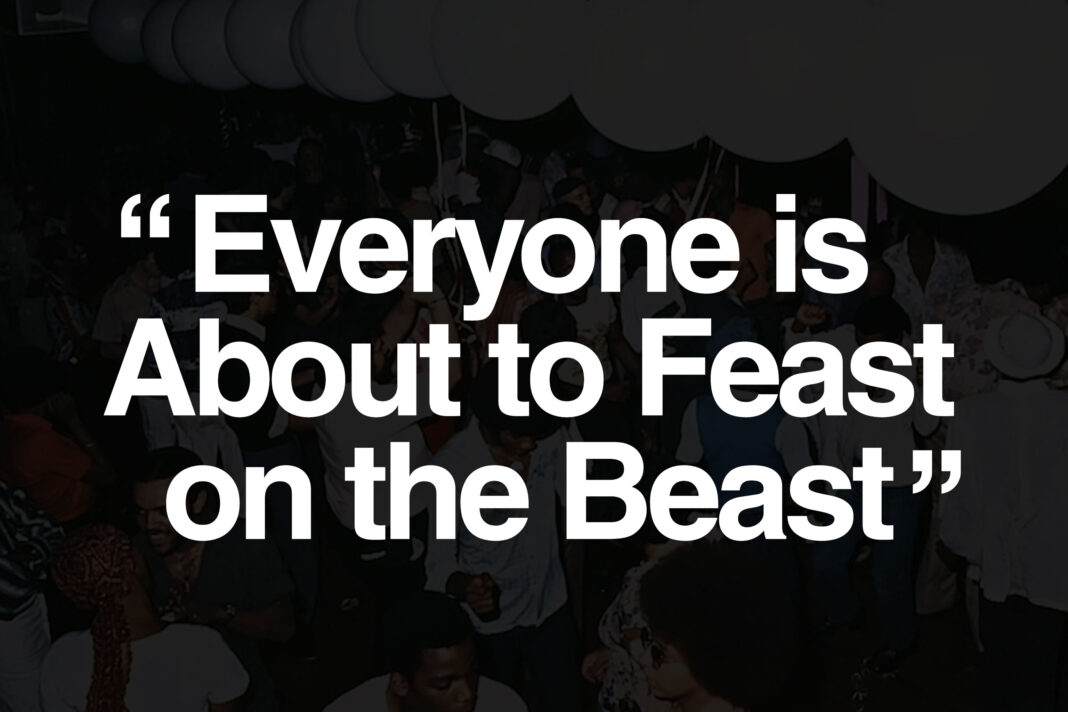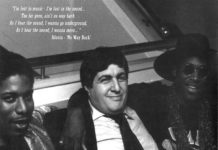Chicago was a mecca for arts and culture in the first half of the 20th century, catalyzed by waves of migrants from Europe, the Eastern Seaboard but most of all the Great Migration of Black men and women from the South.
In 1943, Muddy Waters became one of the latter, moving from Mississippi to drive a truck by day and jam at night. A year later he would buy an electric guitar and amplifier, because in Chicago’s jumpin’ nightlife scene “couldn’t nobody hear you with an acoustic.”
The revolutionary sounds of Waters’ generation of Black Chicago artists were captured on wax by two brothers from a previous wave of migration — from Poland — for a label they’d taken over and would soon christen after their Americanized last names: Chess. Phil and Leonard Chess had long been involved in the city’s nightlife scene. Their father had reputedly been a bootlegger under Al Capone, and the brothers ran a series of jazz clubs on Chicago’s South Side. When the last club, Macomba Lounge, burned to the ground, they threw everything they had into what would become Chess Records, shifting their area of interest from the jazz scene to the raw, raucous “urban blues” created on the scratchy amps of the city’s newcomers.
This was mostly how things worked in Chicago. Culture was first staked out by some far-out fringe figures. Then it became the establishment, and then it was upended in turn by a new generation of artists.
But there was always an element of exploitation in the mix. The talented Black men and women who set off these earthquakes rarely had enough leverage to get their fair share of the sums their music and recordings generated. Almost everyone else in the chain prospered more from their talent than the artists themselves. And there were always economic, social and racial dimensions to this exploitation.
‘Everyone is about to feast on the beast. Don’t let the people forget who kicked in the door first. It was Adonis.’
This pattern would repeat itself in an almost cartoonish manner when a new generation of Black youth proved pivotal in the creative explosion of house music. By this point Chicago, like most Rust Belt cities, had been devastated economically and culturally it wasn’t in much better shape. Since the day Muddy Waters arrived in town, power in the music industry had become centralized in New York and Los Angeles. Chicago, Detroit and other Midwestern cities had gone from a point of destination to a point of departure for migration. The cultural and social institutions of the kind that the Chess brothers found still intact and exploited for their record label project had been largely wiped out.
Now, a generation that taught itself how to play records like nobody had before largely had little idea and no guidance in how they should make their own. What would become Trax Records stepped into that void — better for some, but mostly for worse.
If you want to know the difference between how New York and Chicago’s dance music scenes evolved, a producer who lived in both places once told me, it’s that New York had Mel Cheren of West End and Chicago had Larry Sherman of Trax. Both were businessmen, with the difference being that one was definitely part of his community — Cheren’s work in the LGBTQ+ community amidst the epidemic of fear and death in the early years of the AIDS crisis would be his legacy even if West End had never existed. That wasn’t charity. Those were friends and family.
I asked a producer who has released music on Trax if he thought of Larry Sherman as part of his “community.” He laughed. That’s probably a more generous comment than others would give, considering the bad blood between Trax and the artists whose revolutionary music has been solely responsible for the label’s notability over the years — and, increasingly, for the notoriety associated with how the label dealt with the people who created it.
If you want to know the difference between how New York and Chicago’s dance music scenes evolved, a producer who lived in both places once told me, it’s that New York had Mel Cheren of West End and Chicago had Larry Sherman of Trax.
That notoriety will soon be center stage again. After issuing a cease-and-desist notice in late August, an attorney representing more than a dozen creators of some of the most prominent records in Trax Records’ catalog has filed a lawsuit demanding the label hand the music back to its creators. Among them are “Real Love,” “Funk U Up,” “Dum Dum,” “It’s Got To Be Funky” and more.
A writer for 5 Mag saw a copy of the August cease-and-desist letter and began due diligence. Purportedly acting on behalf of Jesse Saunders, the letter also included a list of clients that the attorney, Sean Mulroney, claimed to represent. It was a who’s who of classic Chicago house artists. Among those listed in the letter were K’Alexi Shelby, DJ Pierre, Jim Marcus, Farley Jackmaster Funk, Johnny Fiasco, Maurice Joshua, Lidell Townsell, Jamie Principle, Yvonne Gage, Ralphi Rosario, Steve Poindexter, Lee Haggard, Rick Barnes, Mark Panick, Byron Stingily, Gerald Lott, Dean Anderson, Felix da House Cat, Wayne Williams, Arnold Hennings, Marshall Jefferson and Harry Dennis.
5 Mag contacted several artists on this list. Johnny Fiasco, Wayne Williams and others independently verified that they were part of the legal action.
“Everyone is about to feast on the beast,” Chicago house legend Adonis — who clarified that he is not part of the case — told us. “Don’t let the people forget who kicked in the door first. It was Adonis.”
After ominous threats of litigation made against one of our staff when we were pursuing a similar story several years ago, 5 Mag has instituted a policy of communicating with Trax Records and Rachael Cain solely through legal counsel. When we contacted Cain’s attorney, Scott Spivey, for comment on the August cease-and-desist letter, Spivey responded a few days later with a copy of a lawsuit just filed in civil court for Orleans Parish in Louisiana. The lawsuit charges Mulroney — attorney for the artists — with defamation for the cease-and-desist letter. The text of the lawsuit also included the same email from 5 Mag that Spivey was responding to.
‘It’s easy to make a woman a scapegoat now that Larry Sherman is dead. Even though it is well documented that he tried to have me killed.’
On September 11, Rachael Cain sent 5 Mag a press release which was later printed on a piece of paper, photographed, and posted on Trax Records’ social media accounts. Titled THE TRUTH ABOUT TRAX! the release claims the company is finally prepared to “tell its truth and clear up its legacy,” which was not possible in the past due to legal entanglements with Casablanca Trax. Despite a documented history of releasing new music under the label’s name, throwing events branded with Trax’s logo and even controlling the social media channel the letter was posted to, the letter claimed that Cain “had no real control of the company until January 1st, 2022.”
In October, Trax posted a new statement on social media, also apparently written by or on behalf of Cain. “Lots of people do not know what really happened and to be truthful I’m being targeted and blamed,” it read.
The next few sentences from this extraordinary statement are reproduced verbatim:
5 Mag also has a policy (not related to Trax) to only cover stories based upon filed lawsuits rather than threats and accusations of one. We decided to wait until the lawsuit described in Mulroney’s cease-and-desist was filed, which, according to an in-depth overview of the litigation by Michaelangelo Matos in Rolling Stone, was submitted on October 14, 2022.
The action by the artists has been in the works for some time, according to 5 Mag’s sources. As we stated then, several artists indicated that they were emboldened by the lawsuit filed by Larry Heard and Robert Owens against Cain and Trax Records to reclaim their back catalog releases. After two years of pre-trial litigation, Heard & Owens had their publishing returned in a settlement in August 2022. (Cain’s initial press release states that “no one ‘won’ the litigation as incorrectly reported.”)
Heard & Owens’ lawsuit marked the most widely publicized case by Chicago’s pioneering house music artists against the original labels that released their recordings and — most of these artists have long argued — exploited their creators. The complaint filed by attorneys for Heard & Owens alleged forgery in assigning publishing to Trax rather than the artists, an allegation repeated by Mulroney on behalf of Saunders and his clients, and which Cain and Trax deny.





















